
With the cost of living still on the rise and the state struggling to meet a host of long-term challenges, Colorado’s lawmakers gather at the state Capitol today to begin a new legislative session.
After a surprisingly strong election showing, Democrats now hold unprecedented majorities in both chambers. That means that much of this session’s drama may come not from conflict between the two parties, but from divisions within the Democratic caucus, as well as differences between the legislature and the governor’s office, where Democratic Gov. Jared Polis is beginning his second term.
The legislature is also welcoming a large number of freshmen today. In the House, 31 of the 65 representatives are new to the chamber. The incoming House Speaker Julie McCluskie said she’s excited to hear the ideas they bring.
“I think for the first time in the House, we are seeing an incredible, diverse representation of the communities that exist all across this state,” McCluskie told CPR’s Colorado Matters. “And I'm excited to see that diversity of opinion, perspective, that diversity of lived experience play out in a very constructive and productive way for our state.”
The Senate has 10 new members, and all but two of them are coming to the chamber from the House.
While Democrats won’t need Republican votes to get their policies through, the session is still starting off with talk of bipartisan cooperation. Sen. President Steve Fenberg said truly successful policymaking needs to involve both sides of the aisle.
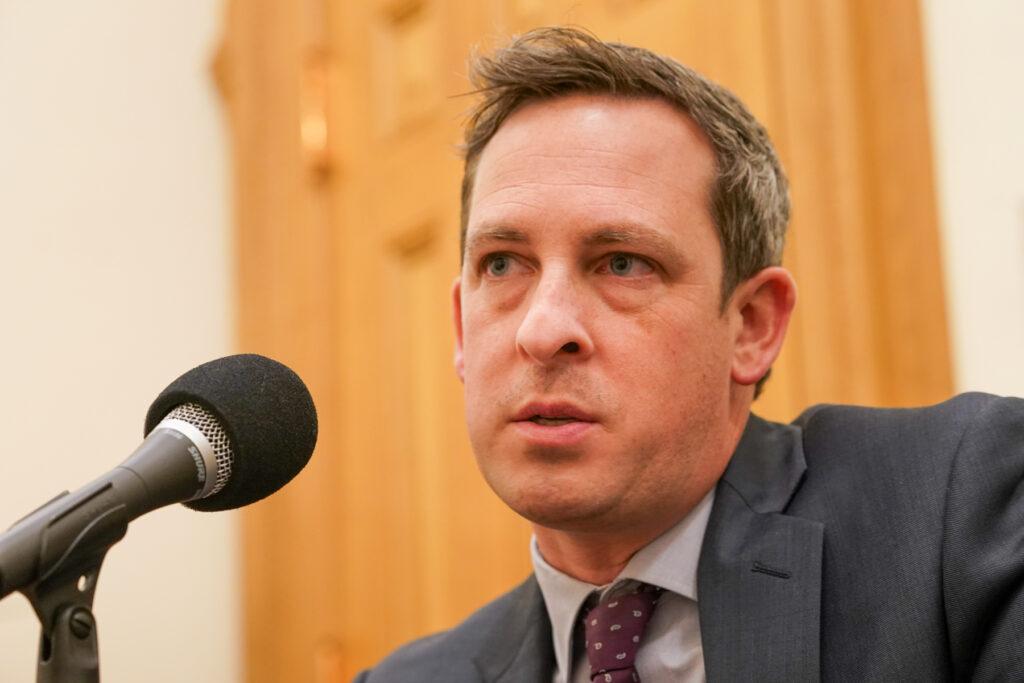
“I think as progressives, as Democrats, if we have these big majorities and we feel that we have a mandate, I think that we also have a responsibility to deliver on that mandate in a way that's gonna be durable,” said Fenberg. “The more we can bring Republicans to the table, to hear them out, to have them part of conversations, the more likely those policies, when we pass them, will stay on the books for a long time.”
On a practical level though, Republicans, who hold less than a third of seats in both chambers, will have limited options to change or derail Democratic bills.
“We don't have some sort of a battle strategy that’s gonna go flying in their face,” said Republican House Minority Leader Mike Lynch. “But we're gonna make sure that all aspects of those things that we don't agree with are brought to the forefront.”
Lynch was never expected to take on this role, and he will lead a reduced caucus that has suffered a number of recent shocks. Members are still mourning the sudden death of GOP House leader Hugh McKean in October. Shortly afterward, a lawmaker many assumed would replace McKean, Rep. Colin Larson, lost his reelection bid.
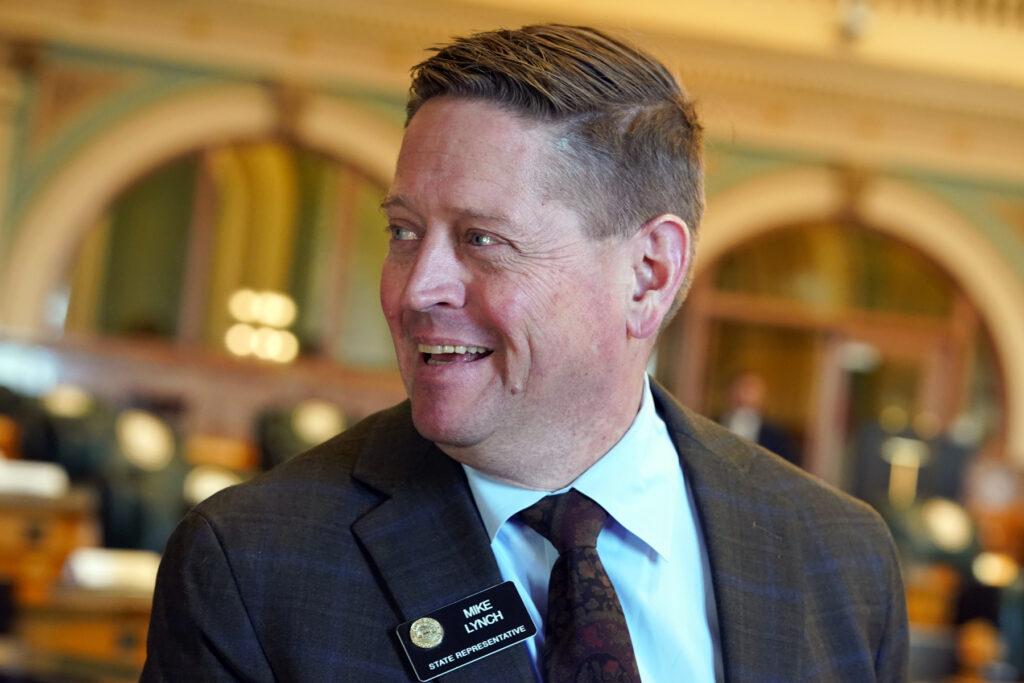
“I'm not excited about the way that I ended up in this position to start off,” said Lynch. “That being said, I'm in this position and gonna charge forward with it.”
Lynch said Republican priorities for the session include trying to rein in government spending and going further to increase penalties for the possession and distribution of fentanyl. Colorado lawmakers already tightened the existing law last year, but many in law enforcement want the penalties to be even harsher.
“That has just become a passion of mine because it's so sad that it's killing innocent kids and I've got kids that are in that age range,” Lynch said. “I lose sleep at night that my kids are gonna accidentally take the wrong thing or take anything. And so I'll continue on the fentanyl fight.”
Democrats look to go further on guns, social issues
For some Democratic state lawmakers, this session’s massive majority is an opportunity to go further on issues they’ve been working on for years, including abortion access, gun violence and LGBTQ rights.
Democrats hope to expand the scope of the state’s 2019 red flag gun law, in part by broadening who can petition a court to remove someone’s firearms. Currently, that role is limited to law enforcement and close family members. Additionally, Democratic Rep. Judy Amabile of Boulder said she’d like to see the state impose a mandatory waiting period for all gun purchases.
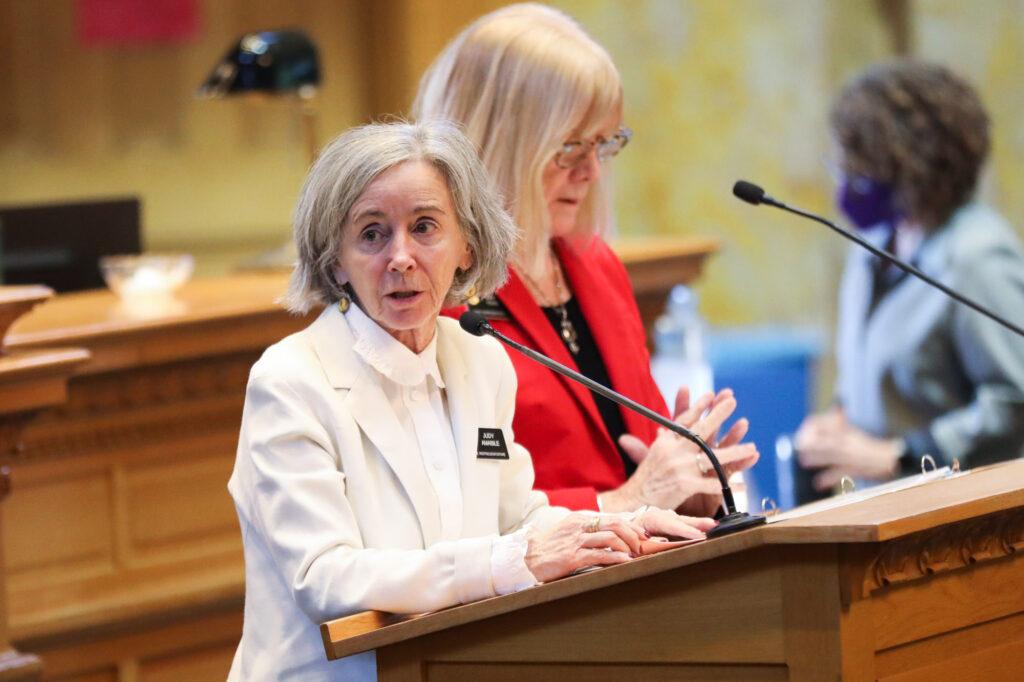
“I'm concerned about mental health and suicide,” she said. “Waiting periods have been shown to really reduce suicide, and they also reduce homicide, and domestic violence.”
Democratic lawmakers have passed a number of gun control measures in recent years as the party has solidified its control over state government. Those include universal background checks, a high-capacity magazine ban, mandatory reporting of lost and stolen firearms and requirements for safe firearm storage.
Last year, in anticipation of the Supreme Court’s overturning of Roe v. Wade, the legislature passed a bill to cement legal abortion in state law. Now, the lead sponsor of that legislation, Democratic Rep. Meg Froelich, wants to go further.
Froelich said lawmakers are looking at codifying Governor Polis’ executive order that aims to protect Colorado abortion providers from lawsuits.
“We want to make sure that our providers are protected in terms of their privacy and in terms of their scope of practice and their licensure and any out-of-state actions,” she said.
With the Supreme Court’s Dobbs ruling also raising fears about the future of the federal right to same-sex marriage, some Democrats believe it’s time for the state to speak clearly on that issue as well.
While they are not currently in effect, Colorado has both a law — passed in 2000 — and a constitutional amendment — approved by voters in 2006 — that ban same-sex marriage.
Democratic Sen. Jessie Danielson believes it’s time for the state to officially erase the 2000 law. “The legislature has an obligation to do away with that ban to show the communities that we care about (them), that we're gonna stand up and protect them,” she said.
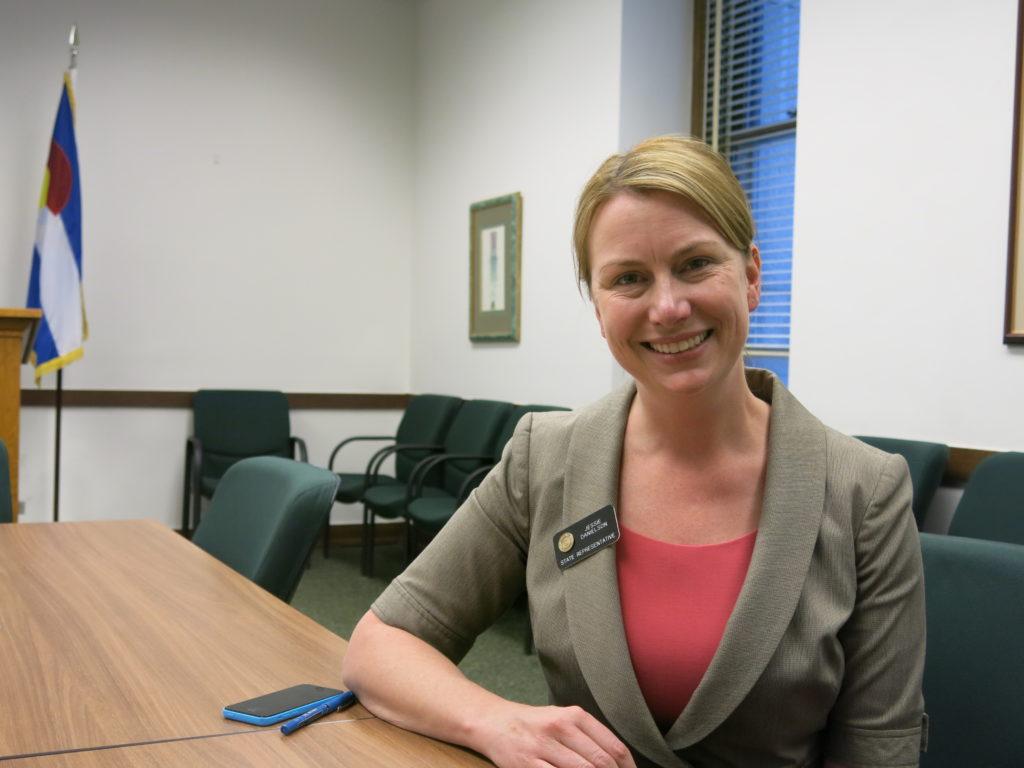
(John Daley/CPR News)
Rep. Jessie Danielson, D-Wheat Ridge, co-sponsored a bill to allow prosecutors to expedite the videotaping of victims to help fight elder abuse.
Repealing the amendment would be trickier. It takes support from two-thirds of lawmakers in both chambers to put a constitutional change on the ballot.
Republicans at the Capitol are expected to oppose any Democratic measures on guns and abortion, but will not have the votes to stop Democrats from enacting the legislation.
Gov. Jared Polis also wants Democrats to take on housing affordability by encouraging denser, transit-connected development. And the legislature may take new steps to address two big challenges brought by the warming climate: drought and wildfires.
One idea being floated is to create a state-run insurance program to serve homeowners in fire-prone areas.
“We are already hearing about homeowners that can't get insurance policies, or if they can get it, it's essentially not attainable,” said Fenberg. “We are looking at a policy that potentially could provide sort of an insurer of last resort. It's not gonna be a direct competitor (to private plans)... This is a policy that, if you can't get it elsewhere or it doesn't make sense to go elsewhere, that it could be available to you as a homeowner.”
After years of surpluses, a tighter budget outlook
The only thing lawmakers are legally required to accomplish in their 120-day session is the passage of a balanced budget. Over the past few years, a massive influx of federal COVID relief money has made that an easier prospect. But the legislature’s budget committee expects to have some tough conversations as it works to finalize the spending package that will take effect July 1.
Even though the economy is still growing and unemployment remains low, a year of high inflation and ongoing uncertainty have business leaders and state economists worried about the looming potential for a recession.
That has some lawmakers arguing it’s time to put a lid on state spending, ahead of any potential drop in revenues. Republican state Sen. Barbara Kirkmeyer believes the state needs to cut back, just like regular families.
“They're having to make cuts around that kitchen table, deciding what they're going to do,” said Kirkmeyer, who was appointed to the Joint Budget Committee after losing her bid for the 8th Congressional District. We should be doing the same thing in state government and we're not. So I'll be focusing on that.”
Gov. Polis also has called on the legislature to work on a “long-term tax relief package” for property taxes, including $200 million to slow the rise of property tax bills this year.
Even with fiscal warning signs on the horizon, Speaker McCluskie, who chaired the budget committee last year, is hopeful lawmakers can find a way to put more money into education.
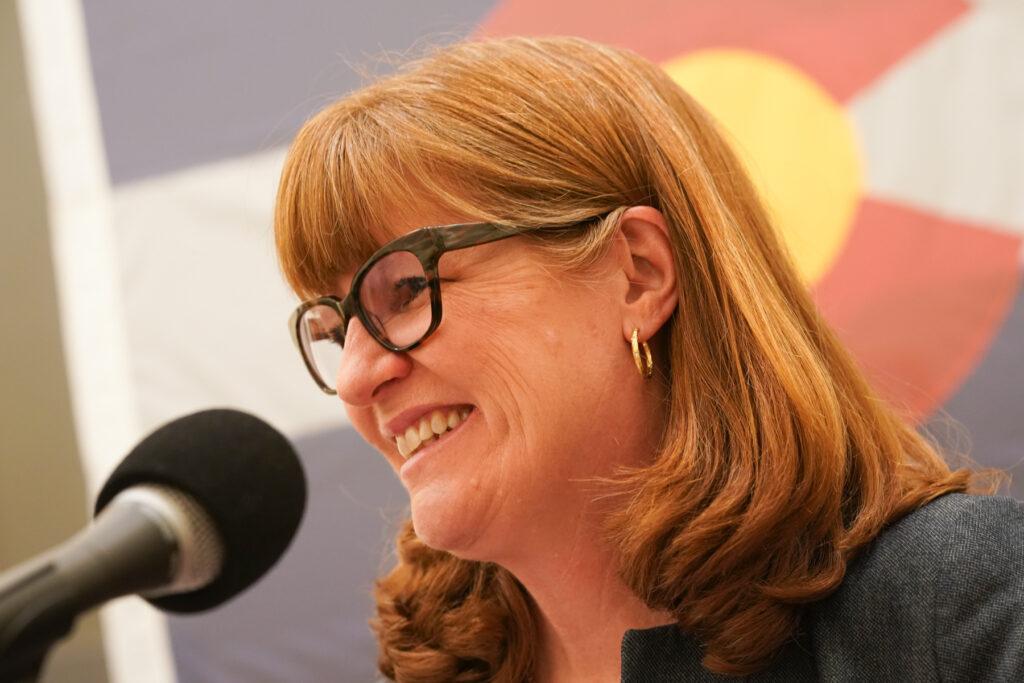
“I am strongly committed to fully funding public education in this state, and we currently are not,” said McCluskie, noting that the state has used a tool called the “budget stabilization factor” to legally underfund education since the Great Recession. “(It) has has taken money away from our public schools for more than a decade, and it is time that we erase the budget stabilization factor.”
However, McCluskie said the larger concern is that restrictions on state spending in the Taxpayers Bill of Rights currently prevent Colorado from keeping all of the tax money it brings in, instead requiring the state to send out refunds in strong revenue years.
“My hope is in this year and next that we will continue our conversations around fiscal reform,” said McCluskie. “I really do believe that we can continue to have conversations with our constituents and our voters and help craft a responsible amount of fiscal reform that addresses the needs of our public schools as well as our communities.”
CPR’s Andrew Kenney contributed to this reporting.









